|
Douglas Silas,
Specialist SEN Solicitor 1st February 2021
Typical!
After the last couple of weeks, with a lot of guidance and other information being sent out by the Department for Education (DfE), which I shared with you here, as I made my way through this past week, it had seemed a bit quieter now on that front, so I therefore thought that my update this week could be a bit lighter. However, just as I was packing up from work on Friday afternoon for the weekend (I finish earlier on Fridays), I received another very detailed email sent out by the DfE, this time entitled: '**SEND NEWSFLASH** UK disability survey; details of disability and access ambassadors; schools' SEND publication requirements & update on access to work funding' (do they pick their timings deliberately?) So, rather than my telling you everything that it says here (which would then not allow me much room for anything else really), I am only going to refer to one main part of it below in my first section of this update, which I think will be useful to most people.
Don’t forget, to ensure that you never miss one, you can get my SEN Updates personally by completing your email details above,
or by following me on one of the social media platforms I use (i.e. Twitter/Facebook). You can also share this SEN Update with others (please only do so if it may be relevant to them) by using one of the icons, usually to the right or at the bottom of this page.
The main part of the DfE's email, which I thought would help most people by my repeating here, states as follows:
'Duties on and expectations of schools over publishing material online We have updated our summaries of the material that schools must or should publish online, including in relation to: · SEN Information Reports, which need to be updated at least annually · details of how a school complies with the public sector equality duty, with information which needs to be updated every year · a school’s equality objectives, which need to be updated at least once every four years · contact details of SENCos Schools will also typically wish to publish the Accessibility Plan, that they have to update at least once every three years. Information as to that Plan needs to be included in their SEN Information Report. There are no changes to the law and our guidance on publishing of the above, but in the updates of our summaries we have sought to bring together all the relevant material in one place and to set it out clearly. We invite Heads, SENCOs and governors/trustees to consider whether the above material on their websites remains up to date. The relevant links to our summaries of the requirements and expectations of schools are: - for maintained schools, https://www.gov.uk/guidance/what-maintained-schools-must-publish-online - for academies/free schools, https://www.gov.uk/guidance/what-academies-free-schools-and-colleges-should-publish-online
The other bit of Government information that I was already intending to bring you this week was from OFSTED and entitled: 'Remote education research (research and analysis)', whose introduction states:
'Since March 2020, the need for and the expectations placed on remote education have changed considerably. From the middle of March and for most of the summer term, the COVID-19 (coronavirus) pandemic led to school buildings in England being closed for most pupils. There was no requirement to provide remote education during this period, although some guidance was published. Schools were open to all pupils from September 2020 but, given the need for class and year group bubbles and self-isolating pupils, the Department for Education established a continuity directive for mandatory remote education. School buildings were again closed to most pupils in January 2021. From that point, remote education has been a requirement, so that pupils can continue with their learning. At the beginning of January, we published guidance on ‘What is working well in remote education’. As England entered a third national lockdown, that short paper was intended to provide the sector with some immediate advice and reassurance on useful remote education approaches that had been distilled from our recent research activities. Remote education matters. Until mass vaccination is achieved, local lockdowns, class and year group bubbles and individuals self-isolating are likely to remain part of daily life. This will have a continuing impact on schools’ capabilities in delivering a broad and balanced curriculum to all pupils. Schools are likely to continue to rely on remote solutions to provide coverage and mitigate against learning loss. Furthermore, evidence from our interim visits suggests that given the amount of time and resources that school leaders have placed into developing their remote solutions over the past 10 months, it is likely that schools will incorporate aspects of remote education into their teaching after the pandemic. Understanding what successful remote education is has been a priority for Ofsted during the pandemic. Education providers have of course been learning ‘on the job’, and many will now be well advanced in their own understanding. This paper sets out what we have learned through our research and visits and we hope providers find it helpful.' It's contents are set out then as follows:
Also, there were lots of thought-provoking new articles this week in the media - here's a few if you are interested:
- 'Knackered and confused.' That's just the parents - Opening schools a national priority, says government - Boris Johnson hopes schools in England will reopen from 8 March - Covid-hit pupils 'should be allowed to repeat a year' - Behind closed bedroom doors, a teenage mental health crisis is brewing - Nursery staff are being treated like cannon fodder so 'higher-value' work can go on - COVID-19: PM's letter praising families for efforts during pandemic criticised as 'kick in the teeth'
Where can I find further information?
Again, aside from clicking on the relevant links for more information, I would also remind you of the very useful resources and information provided on the following websites: - IPSEA - Council for Disabled Children - Contact - Scope - Special Needs Jungle I would also highlight again the fact that you can now get digital copies of the magazines: SEN Magazine and Autism Eye which are both very helpful to any parents or professionals involved with children/young people with SEN. Keep safe until next week. With best wishes Douglas
P.S I understand that there are a number of educational or other useful resources now on the web, so I would be very grateful if you could let me know of any that you find that other people may find useful, so that I can direct people to it.
How useful do you find my SEN Updates?
Created with Quiz Maker
Douglas Silas, Specialist SEN Solicitor 25/1/2021 Hope that you have had a good week and have settled into a routine of sorts. Routine and consistency is always the key to everything, but the trick is to create positive habits and try and avoid developing negative habits - easy to say, but very hard to do sometimes! I am going to try and keep this update a little lighter this week, but I do want to try and bring your attention to a few things in case you need them. I hope that this helps again. Don’t forget, to ensure that you never miss one, you can get my SEN Updates personally by completing your email details above, or by following me on one of the social media platforms I use (i.e. Twitter/Facebook). You can also share this SEN Update with others (please only do so if it may be relevant to them) by using one of the icons, usually to the right or at the bottom of this page. The first thing that I want to draw your attention to today is the fact that my friends at IPSEA (Independent Providers of Special Education Advice) last week updated their information page on their website about how the COVID-19 measures will affect children and young people with special educational needs and disabilities, to deal with all the latest Government guidance. Rather than me telling you what it says, you can read it for yourself here: 'IPSEA update on COVID-19 and SEN provision'. IPSEA have also added to their templates page, a model letter for making a complaint when a school is not using their best endeavours and/or refusing attendance for a vulnerable child during the National Lockdown, which you can find here: 'Model letters' This next section will not apply to everyone, so please feel free to skip it if it means nothing to you. Again, I received another email from the Special Education Needs Division at the Department for Education (DfE), which this time stated: "Dear colleagues, We would like to draw your attention to a new PPE Portal for Special Schools and Specialist post-16 institutions, and to the joint DfE/Ofqual consultations on the arrangements for awarding grades for GCSE, AS, A levels, and for vocational and technical qualifications this summer (deadline 11.45pm on 29 January). PPE Portal On 19 January Special Schools and Special Post-16 Institutions (SPIs) across England received an email invitation to register with the Department of Health and Social Care’s (DHSC’s) PPE Portal. Using the PPE Portal Special Schools and SPIs can place a weekly order of PPE (free of charge) to meet their Coronavirus (COVID-19) PPE needs. Residential Special Schools and Residential Post-16 Institutions will have already received an email invitation in August 2020. This source of PPE (via the PPE portal) is solely for Coronavirus (COVID-19) requirements as outlined in the our guidance: Safe working in education, childcare and children’s social care settings, including the use of personal protective equipment (PPE), and should not be repurposed for any other use. As per this guidance, Coronavirus (COVID-19) PPE requirements are limited to PPE use in the following scenarios: (i)when dealing with a child or individual who is symptomatic (and a distance of two metres cannot be maintained), and (ii)when performing aerosol generating procedures (AGPs). DHSC advise that schools are still required to supply their own PPE (from their usual supply channels) for any other purpose. Special schools and special post-16 institutions should have received the email invitation from: [email protected]. It has been sent to the email address which your setting has registered with the Get Information About Schools database. This is the only email address which is eligible to register. Please ensure that you have checked your junk folder. If you have not received the email invitation, please contact the Customer Service team at 0800 876 6802 who will be able to help support you in registering with the portal. Please wait until close of play on Wednesday, 27 January before enquiring about not receiving an email invitation. To confirm the eligibility of the setting you will need to provide the setting’s URN (you can check the URN at https://get-information-schools.service.gov.uk/)." It also stated: "Consultation on arrangements for awarding grades in summer 2021 Last Friday, the Department for Education and Ofqual launched joint consultations on arrangements for awarding grades for GCSE, AS and A levels this summer and on awarding arrangements for a range of vocational and technical qualifications. We are interested in your views on the consultation proposals, in particular, the equality impact assessment of the proposals. The deadline for responses to both consultations 11:45pm on 29 January 2021." Finally, there was some news of interest, as follows: - 'School attendance in England higher than first lockdown' - 'One in four UK young people have felt 'unable to cope' in pandemic'. - 'Covid: Gavin Williamson hopes England's schools will reopen by Easter' Where can I find further information? Again, aside from clicking on the relevant links for more information, I would also remind you of the very useful resources and information provided on the following websites: - IPSEA - Council for Disabled Children - Contact - Scope - Special Needs Jungle I would also highlight again the fact that you can now get digital copies of the magazines: SEN Magazine and Autism Eye which are both very helpful to any parents or professionals involved with children/young people with SEN. Keep safe until next week. With best wishes Douglas P.S I understand that there are a number of educational or other useful resources now on the web, so I would be very grateful if you could let me know of any that you find that other people may find useful, so that I can direct people to it.
Douglas Silas,
Specialist SEN Solicitor 18/1/2021
So, we just seem to be settling in again; although it appears that whilst a lot of people are once more working from home if they can, many more children and young people this time seem to be (sometimes only timidly) going back to school or college, if they are allowed to.
I must admit though that I was pleasantly surprised to hear from some people after my first (now) weekly SEN Update last week, thanking me for keeping them updated. So I write now this week again, this time knowing that there are many people being helped by my doing weekly updates again, in now in what is our third 'lockdown'. As I provided you with a lot of information/signposting last week, this week I was going to focus on just a few things. However, there is still a lot of information or news out there that I want to bring to your attention, so this week's update is a bit longer than I expected! Again though, I hope that this helps people.
Don’t forget, to ensure that you never miss one, you can get my SEN Updates personally by completing your email details above,
or by following me on one of the social media platforms I use (i.e. Twitter/Facebook). You can also share this SEN Update with others (please only do so if it may be relevant to them) by using one of the icons, usually to the right or at the bottom of this page.
The first thing that I want to draw your attention to is a letter sent out a few days ago on the afternoon of Thursday 14/1/2021 by the Department for Education's (DfE's) Special Educational Needs and Disability Division, entitled 'SEND NEWSFLASH - Special & alternative schools guidance & open ministerial letter', which stated:
'Dear colleagues, We would like to draw your attention to the additional guidance published today for special schools, specialist post-16 providers, and alternative schools (including hospital schools) during the national lockdown period. It should be read alongside the main guidance document: Restricting attendance during the national lockdown: schools and the Further education guidance for restricting attendance during the national lockdown, which covers the main operational issues. Please also find attached an open letter from Vicky Ford MP, Parliamentary Under Secretary of State for Children and Families to children and young people with SEND, their families, and those who work to support them. Regards, Special Educational Needs and Disability Division.' The open letter from Vicky Ford MP then stated: "To all children and young people with special educational needs and disabilities (SEND), their parents/carers and families, and others who support them. As you will be aware, on Monday 4th January, the Prime Minister announced a national lockdown to control the spread of coronavirus (COVID-19), which is expected to last until at least mid-February. Unfortunately, this means we have to return to restrictions on attendance at schools and colleges. I know that these restrictions are a source of anxiety for many children and young people with special educational needs and disabilities (SEND) and their families. As the Minister for Children and Families, I am committed to ensuring that appropriate education and support is available for all children and young people during the national lockdown, whether they are attending their education setting or at home. I am grateful to the families who provide care to their children and the professionals who work tirelessly to support them. I am pleased to assure you that children and young people with an EHC plan should be allowed to continue attending their education setting if their parent wants them to (or, for post-16 provision, if the young person wants to attend), as they are classed as vulnerable for the purpose of determining which children and young people should be allowed to attend school or college during this period. The definition of vulnerable also includes others at the education setting and local authority’s discretion, including pupils and students who need to attend to receive support or manage risks to their mental health. We know that many children and young people with SEND have faced challenges during the pandemic and I am committed to ensuring that we support their attendance wherever possible. Where, for any reason, it is not possible for a child or young person with SEND – including both those with an EHC plan and those who are supported through SEN Support – to attend their education setting during this period, they should receive remote education and support. The legal duty on schools and colleges to use their best endeavours to meet the special educational needs of their pupils and students, including those supported through SEN Support, remains unchanged, whether they are attending school or college or at home for any period. Attendance at education settings In the face of the rapidly rising numbers of cases of COVID-19 across the country and intense pressure on the NHS, it is essential that we reduce opportunities for mixing and transmission. For this reason, only vulnerable children and young people (including those with EHC plans) and children of critical workers should attend their school or college. Guidance on who should be allowed to access a school place can be found here: https://www.gov.uk/government/publications/coronavirus-covid-19-maintaining-educational-provision/guidance-for-schools-colleges-and-local-authorities-on-maintaining-educational-provision. This is not a decision that we have taken lightly. I am aware of the challenge that this will present to children and young people, their parents and teachers. We will review this position regularly to ensure that all children and young people can return to face-to-face education as soon as possible. I want to reassure you that the decision that attendance should be limited does not suggest that schools and colleges have become significantly less safe for children and young people. The risk of children and young people becoming seriously ill from COVID-19, including the new variant, continues to be very low, with the overwhelming majority experiencing no symptoms or very mild illness only. For children and young people who continue to attend their education setting, and their teachers, the system of protective measures means that any risks are well managed and controlled. Details on the system of protective measures that schools should put in place are included in guidance here: https://www.gov.uk/government/publications/actions-for-schools-during-the-coronavirus-outbreak. All pupils and students not receiving face-to-face education for whatever reason should be provided with suitable remote education. Education settings should work collaboratively with families, putting in place reasonable adjustments as necessary, so that pupils with SEND can successfully access remote education alongside their peers. We have also published a list of high quality online educational resources to support home learning. This includes resources that are suitable for pupils and students with special educational needs and disabilities (SEND) of all ages, from early years to those in further and higher education settings. The list of resources can be found here: https://www.gov.uk/guidance/get-help-with-remote-education#special-educational-needs-and-disabilities-send. In addition, where a child or young person has an EHC plan, it remains the duty of the local authority and health commissioning body to secure or arrange the provision specified in the plan under section 42 of the Children and Families Act 2014. However, I know that there may be times where it becomes more difficult to do so than usual. In these circumstances, education settings, local authorities and health partners (where applicable) should discuss with families to co-produce alternative arrangements for delivering provision. These decisions should be considered on a case-by-case basis which takes account of the needs of and circumstances specific to the child or young person, avoiding a one size fits all approach. At this stage, we do not intend to use the powers under the Coronavirus Act 2020 to modify the section 42 duty, but we will keep this position under review based on the evidence. Special schools and special post-16 institutions should continue to welcome and encourage pupils and students to attend full-time (or as per their usual timetable) where the parent or carer wishes for their child to be able to attend (or for post-16 settings, where the young person wishes to attend). However, I know that there may be circumstances where it is not possible for specialist settings to provide their usual interventions and provision at adequate staffing ratios, or with staff with vital specialist training. In these cases, settings should seek to resume as close as possible to full-time provision as soon as possible, discuss these decisions with families in advance to agree an approach that would be in the child or young person’s best interests, and then keep this under review. Guidance for special schools and specialist settings is available here: https://www.gov.uk/government/publications/guidance-for-full-opening-special-schools-and-other-specialist-settings. Some children and young people and their families may be understandably apprehensive about attending school or college, even where they may benefit from the routine and support available through continued attendance. In the first instance, I strongly encourage parents or young people to discuss any concerns with the education setting, to see whether any reassurance could be provided or adjustments made to support attendance. Education settings, working with other local partners where appropriate, should consider carefully the concerns of the parent or young person and work collaboratively with families so that, where appropriate, the child or young person can be supported to attend. The decision for a child or young person with an EHC plan to stay away from their education setting is ultimately a matter of choice rightly for parents and young people. If a parent wishes for their child to be absent or a young person chooses not to attend, they should inform the education setting of this so it can be properly recorded. Given the exceptional circumstances, the Departmental guidance is clear that it expects leaves of absences to be granted. Absence will not be penalised. Children who are clinically extremely vulnerable The Department of Health and Social Care (DHSC) has published updated guidance on shielding and protecting people who are clinically extremely vulnerable from COVID-19, which is available here: https://www.gov.uk/government/publications/guidance-on-shielding-and-protecting-extremely-vulnerable-persons-from-covid-19. As our knowledge of COVID-19 has grown, we now know that very few children and young people are at highest risk of severe illness. Doctors have therefore been reviewing all children and young people who were initially identified as clinically extremely vulnerable to confirm whether they are still thought to be at the highest risk of becoming seriously ill and discussing this with families. Those aged 18 or over who have been identified as clinically extremely vulnerable should have received a letter informing them of the updated guidance. Where parents have discussed this with their child’s doctors and doctors have confirmed that a child or young person is still considered clinically extremely vulnerable (or, for those aged 18 and over, they have received a shielding letter), they are advised not to attend their education setting during the national lockdown. Education settings should work with local authorities and health partners to ensure that remote education and support is put in place for any pupils or students who are not attending their education setting. Mass testing in specialist schools and special post-16 institutions The Government is delivering a programme of rapid asymptomatic testing in the first half of the Spring term for children and young people in year 7 and above (or equivalent) and school staff, which will be delivered in mainstream and special schools with secondary-aged pupils, special post-16 institutions, Pupil Referral Units and other Alternative Provision schools. This will help to identify asymptomatic positive cases and break the chains of transmission of coronavirus. This is particularly important in special schools and specialist colleges, where the education and care provided often involves close proximity between children or young people and staff and social distancing can be harder to observe. Testing is voluntary, so no child or young person will be tested unless informed consent has been given by the appropriate person (usually the parent or young person). As such, no children or young people will be prevented from receiving face-to-face education if for any reason they are not tested. The test involves a swab of the throat and/or nose. Although the majority of secondary-aged children and young people will be able to self-swab, we recognise that the self-swabbing may cause significant concerns for some children and young people with SEND. Where self-swabbing is not possible, special schools and special post-16 institutions are likely to have staff who have undertaken a variety of training to support health needs and who could administer swabs where appropriate. In exceptional circumstances, settings may want to work with parents to agree to a parent coming in to support their child to self-swab or to swab their child. Detailed guidance on mass asymptomatic testing in specialist settings is available here: https://www.gov.uk/government/publications/guidance-for-full-opening-special-schools-and-other-specialist-settings/mass-asymptomatic-testing-in-specialist-settings. Resources and information for staff have been made available to schools and colleges as they set up their programme. More information for young people and their families, including visuals and easy-read format written materials, will be made available shortly. Health services and respite for children and young people with SEND During the national lockdown, there continues to be an exception to the restrictions on leaving your home and on gatherings set out in Regulations for provision in an EHC plan. This means that children and young people can continue to receive appropriate support from health and social care services where it is reasonably necessary for the purposes of provision specified in an EHC plan. Specialists, therapists, clinicians and other support staff can provide interventions as usual, including where this requires them to move between settings. In addition, there is also an exception to the restrictions on leaving your home and on gatherings set out in the Regulations where this is reasonably necessary for the purpose of respite care for a vulnerable or disabled person. This means that parents and carers may continue to access respite care to support them in caring for their disabled children during the national lockdown, including both services which care for children away from home and care which is delivered in the family home. Guidance for parents on early years providers, schools and colleges, which sets out that respite provision for families of disabled children can continue to operate, is available here: https://www.gov.uk/government/publications/what-parents-and-carers-need-to-know-about-early-years-providers-schools-and-colleges-during-the-coronavirus-outbreak. I know that there are many positive examples of local authorities having worked with families to agree flexible solutions for delivering support – for example, increasing the use of direct payments – and I would encourage this collaborative working to continue. Parents of disabled children under 5 who require continuous care can also continue to form a support bubble with one other household, and parents of all children under 14 can continue to form a childcare bubble. Guidance on making a support bubble with another household can be found here: https://www.gov.uk/guidance/making-a-support-bubble-with-another-household. Building on the support that we have secured to date to ensure that health services for children and young people with SEND (for example, therapies and community children’s nursing) continue to be prioritised, on 10 December, the Chief Allied Health Professions Officer (England) circulated a letter highlighting the importance of the continuation of services delivered by Allied Health Professionals (which includes therapies) for children and young people with SEND. The letter emphasised that services should continue to be prioritised and that the redeployment of Allied Health Professionals should be avoided wherever possible. This enables the provision of therapy services for children and young people with SEND to continue or to be restored where there has been disruption. I know that this national lockdown will be challenging for children and young people with SEND and their families. I am incredibly grateful for the continued dedication and diligence of those who work to support them, whilst recognising that there may be circumstances in which it is more difficult than usual to do so. Co-production and effective communication between all partners continue to be key to ensuring that children, young people and their families can access high quality education and specialist professional care, working together to coproduce alternative methods of delivering this where appropriate. Yours sincerely, Vicky Ford MP Parliamentary Under-Secretary of State for Children and Families" There's not really anything I can add to this, is there?.
As ever, there was a lot of other news this week.
Since I know everyone may not have time to read everything in my updates, I will just signpost you to the articles that I found most interesting and let you go and read them if they are of interest to you: - BBC News - 'Covid-19: Early years staff 'should have vaccine priority'; - Sky News - 'COVID-19: Poorest families hit hardest by pandemic and will find it hardest to recover - report'; and also: - The Guardian - ''We feel forgotten': special needs teachers on helping England's vulnerable children'; - BBC News - 'Covid-19: Special school staff want jab priority'.
But I now that many parents don't just want to read the news, they want practical help!
I was therefore really pleased then when I saw a tweet from the Scope organisation which read: "We want all disabled children and their families to get a good night’s sleep. Our sleep team has lots of useful knowledge and tips to share. Listen now to our first podcast series - transcripts also available. https://scope.org.uk/advice-and-support/sleep-podcast/…
Where can I find further information?
Again, aside from clicking on the relevant links for more information, I would also remind you of the very useful resources and information provided on the following websites: - IPSEA - Council for Disabled Children - Contact - Scope - Special Needs Jungle I would also highlight again the fact that you can now get digital copies of the magazines: SEN Magazine and Autism Eye which are both very helpful to any parents or professionals involved with children/young people with SEN
Keep safe until next week.
With best wishes Douglas
P.S I understand that there are a number of educational or other useful resources now on the web, so I would be very grateful if you could let me know of any that you find that other people may find useful, so that I can direct people to it.
How useful do you find my SEN Updates?
Created with Quiz Maker
by Douglas Silas,
Specialist SEN solicitor 11/1/2021
So we’re back into another ‘lockdown’ again!
It feels like March 2020 again doesn’t it? Although this time we should probably feel better prepared than the first time. But it’s back to homeschooling and online learning for children and young people, with many exhausted parents trying to teach their children once more (some whilst still working) . I recall a popular joke going round last Spring/Summer about homeschooling with a child reported as saying: ‘My teacher this year is not very good, I hope that I don’t have them next year!’ Makes you think, doesn't it? Anyway, as I realise that there are many people again out there with difficulties or limited time (and I know parents of children and young people with SEN often have it doubly or triply hard), I have decided to once more try and do my bit to support everyone. So I am starting up my weekly updates once more, to try and help parents and professionals or save them precious time from having to look for things themselves, by signposting them to news or information that I find. I hope that this helps people again.
Don’t forget, to ensure that you never miss one, you can get my SEN Updates personally by completing your email details above,
or by following me on one of the social media platforms I use (i.e. Twitter/Facebook). You can also share this SEN Update with others (please only do so if it may be relevant to them) by using one of the icons, usually to the right or at the bottom of this page.
The first thing I want to clarify here is what the new 'lockdown' rules actually mean for pupils.
The best summary that I have found is on the website of the Council for Disabled Children (CDC) on a page entitled: 'Changes to national restrictions and temporary school closures' (updated on 5/1/2021), which states as follows: "On Monday 4th January 2021 the Prime Minister announced that England will move into new national lockdown restrictions, in response to data on the increased transmissibility of the new variant of coronavirus, in order to bring the virus under control whilst the vaccine programme is rolled out. The details set out below are based on the current guidance however, we are aware this is a rapidly changing situation and we will update this page as we receive further information. CDC is working across its networks including SENDIASS and the DCO/DMO forum to ensure information about the current situation is clear to both professionals and families across a range of agencies. If you have additional questions relating to the guidance or the new restrictions please contact us at [email protected]. What has changed for Clinically Extremely Vulnerable children?
What has changed for schools and colleges?
Who can continue to attend school and college? The Government states that: “the problem is not that schools are unsafe for children – children are still very unlikely to be severely affected by even the new variant of Covid. The problem is that schools may nonetheless act as vectors for transmission, causing the virus to spread between households.” Children and young people can continue to attend school or college if they:
In practice, to ensure high quality education for children and young people who need to continue to attend school or college, this may require creative approaches from settings including consideration of staffing rotas and blended remote and face to face learning based on the individual needs of children, young people and their families."
I would also like to remind you that the Government still has a page up on its website entitled: 'Supporting your children's education during coronavirus (COVID-19)', which is still useful (although it was last updated in July 2020), which states as follows:
"This page and information for teachers will be updated regularly to include further resources and reflect the latest information and developments. While staying at home due to coronavirus, parents and carers may be worried about their children’s development and the effect of missing school or nursery. No one expects parents to act as teachers, or to provide the activities and feedback that a school or nursery would. Parents and carers should do their best to help children and support their learning while dealing with other demands. Get specific advice on how education can continue at home for children:
Alongside any work your children receive from school, you can try using online educational resources covering various subjects and age groups. Educational programmes to help children learn at home are available from the BBC. Have regular conversations about staying safe online and tell your child to speak to you if they come across something worrying online. Mental health and wellbeing The change of routine and staying at home may make this a difficult time for some children. Public Health England has published advice on how to support your children’s wellbeing during the coronavirus outbreak. Guidance is also available to help you look after your own mental health. Advice on helping children continue their education during coronavirus Help children aged 2 to 4 to learn at home during coronavirus (COVID-19) Information on making child development a part of everyday life and play. Help primary school children continue their education during coronavirus (COVID-19)How to provide support and feedback and structure the day. Help secondary school children continue their education during coronavirus (COVID-19)How to help your child organise their time. Help children with SEND continue their education during coronavirus (COVID-19)Resources designed to support special educational needs and disabilities.
And, although I know that it isn't strictly focused on SEN, as I know that parents and professionals also have or are involved with other children and young people, I want to also signpost you to another page on the Government's website entitled: 'Guidance and support', which further signposts you to additional information, which states as follows:
"Pupil wellbeing and safety
Testing in schools, colleges and universities
Home learning during coronavirus
Exams and managing a school or early years setting - Exams and assessments - Managing a school or early years setting
- Recording attendance - Childcare, holiday clubs, and after school care - Working safely Funding and support for education and childcare
University students and higher education
Where can I find further information?
Aside from clicking on the relevant links for more information, I would again remind you of the very useful resources and information provided on the following websites:
- IPSEA - Council for Disabled Children - Contact - Scope - Special Needs Jungle I would also highlight again the fact that you can now get digital copies of the magazines: SEN Magazine and Autism Eye which are both very helpful to any parents or professionals involved with children/young people with SEN
Keep safe until next week.
With best wishes Douglas
P.S I understand that there are a number of educational or other useful resources now on the web, so I would be very grateful if you could let me know of any that you find that other people may find useful, so that I can direct people to it.
How useful do you find my SEN Updates?
Created with Quiz Maker
|
Archive
March 2022
|
© Douglas Silas Solicitors 2005-24
Authorised and Regulated by the Solicitors Regulation Authority (SRA no: 643718)
‘Douglas Silas Solicitors’ is the trading name of ‘Douglas Silas Solicitors Limited’, a limited company registered in England & Wales (company no: 10689991), whose registered office is Gable House, 239 Regents Park Road, Finchley, London, United Kingdom, N3 3LF. A list of members/directors may be inspected at our office.
Authorised and Regulated by the Solicitors Regulation Authority (SRA no: 643718)
‘Douglas Silas Solicitors’ is the trading name of ‘Douglas Silas Solicitors Limited’, a limited company registered in England & Wales (company no: 10689991), whose registered office is Gable House, 239 Regents Park Road, Finchley, London, United Kingdom, N3 3LF. A list of members/directors may be inspected at our office.


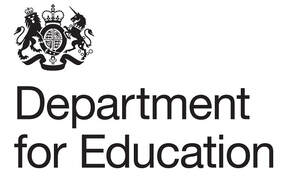
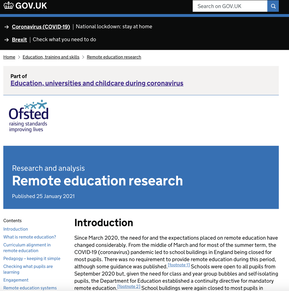



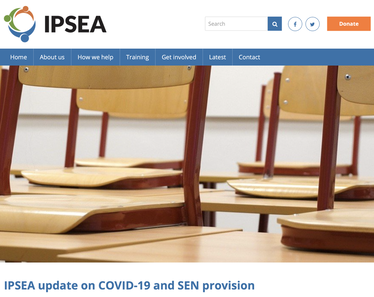
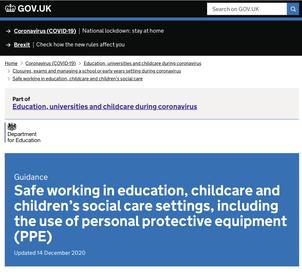
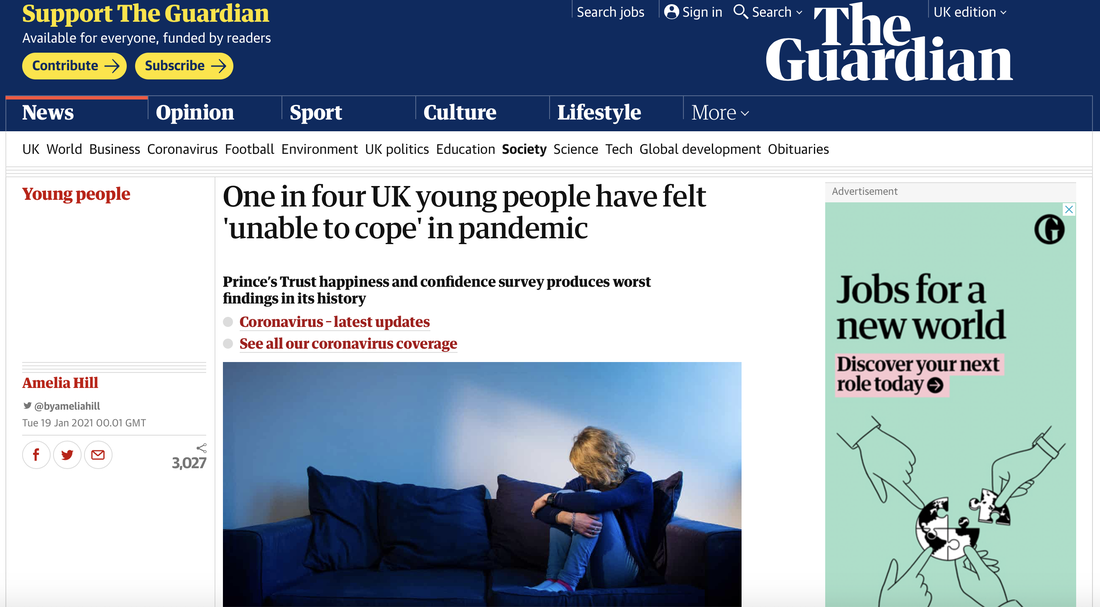
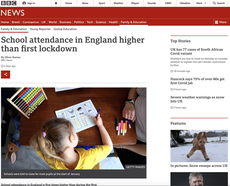
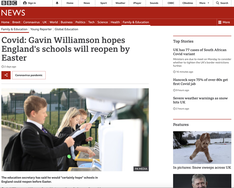

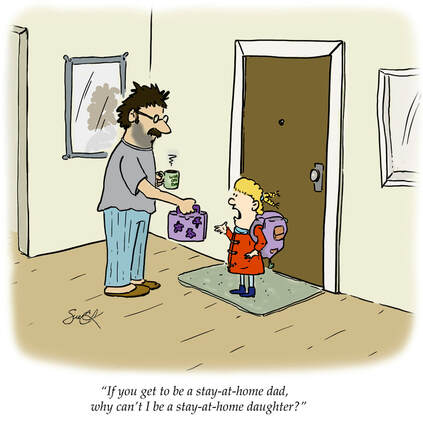
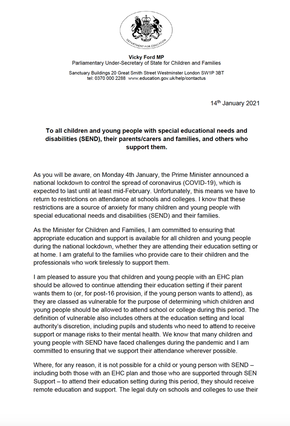
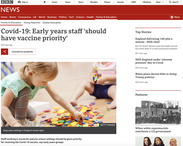
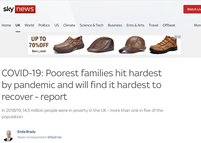
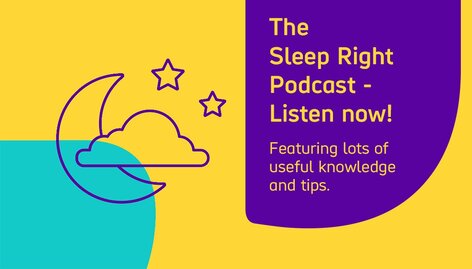

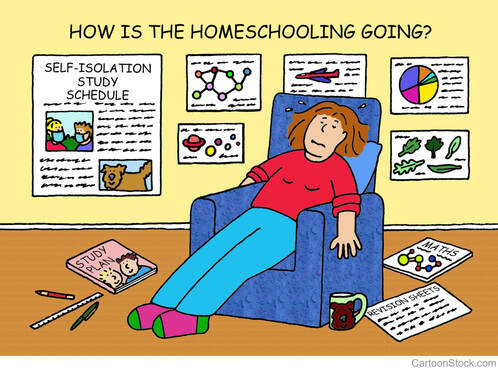
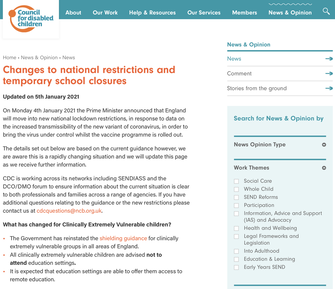
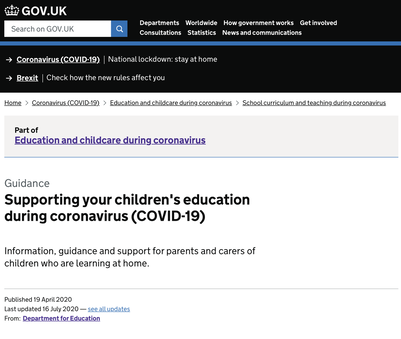
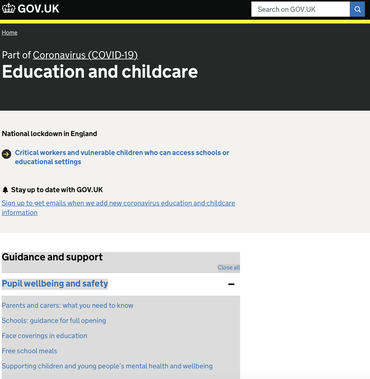

 RSS Feed
RSS Feed







